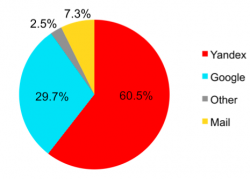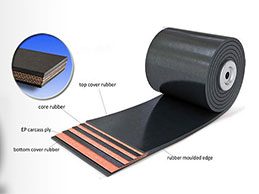AbigBiz > Trade Study > ArticleTrade Study
CIF-Cost,Insurance and Freight,CIF
![]() ABigBizJul14, 2018【Trade Study】
℃
Leave a Reply
ABigBizJul14, 2018【Trade Study】
℃
Leave a Reply
Cost, Insurance and Freight (CIF) is one of 13 international commerce terms known as Incoterms. Incoterms are commonly known trade terms first developed by the International Chamber of Commerce (ICC) in 1936 to govern the shipping policies and responsibilities of buyers and sellers, who engage in international trade. Contracts involving international transportation often use abbreviated versions of these terms to describe matters such as the time and place of delivery, payment, when the risk of loss shifts from the seller to the buyer and who pays the costs of freight and insurance. Incoterms are often identical in form to domestic terms (such as the U.S. Uniform Commercial Code), but have different meanings. As a result, parties to a contract must expressly indicate the governing law of their terms.
The ICC's official definition of CIF reads, “The seller delivers the goods on board the vessel or procures the goods already so delivered. The risk of loss of or damage to the goods passes when the goods are on board the vessel. The seller must contract for and pay the costs and freight necessary to bring the goods to the named port of destination. The seller is also responsible for insuring the goods to cover the risk of loss or damage during carriage. Further insurance beyond the required minimums must be agreed upon between the buying and selling parties, or must be arranged for separately by the buyer. It is also important to note that the term applies only to sea and inland waterway transport."
For further context, consider this theoretical example: Sony in Japan wants to ship a container of flat-screen televisions to Best Buy in the United States. Under CIF, Sony will be responsible for all freight and costs required to get the container of televisions to Best Buy's chosen port of destination. Sony will also be responsible for the costs of insuring the shipment against loss or damage while in transit. Once the shipment reaches Best Buy's port of destination and is unloaded from the cargo ship, Sony's (the seller) obligation is complete, and Best Buy (the buyer) assumes responsibility.
Application of Incoterms
By communicating contract models, these pre-defined commercial terms function to facilitate orderly trade, procurement processes and other international transactions across country lines and language barriers. Recognized by governments, legal authorities and practitioners worldwide, the terms strive to reduce or outright remove variations on interpretations of sales contracts. The three-letter trade terms, which each cover a common contractual sales practice, are primarily intended to communicate clearly and consistently the tasks, costs and risks associated with the delivery and transport of goods. The ICC published its eighth and most recent version of the rules–Incoterms® 2010–on January 1, 2011.
Each Incoterm specifies the parties responsible for goods in transit, insurance coverage and freight charges. The contracts also denote the point at which a seller's obligation is complete and the buyer assumes responsibility. This transfer of responsibility and liability is known as the delivery, even though the goods may still be in transit. As a point of comparison, below we have outlined the distinctions between CIF and several similar Incoterms:
CIF vs. CFR
Cost and Freight (CFR), like CIF, requires the seller to pay the costs and freight necessary to transport goods to the named port of destination. Risk responsibility for lost or damaged goods, as well as any additional costs, gets transferred from the seller to the buyer once the goods are onboard the ship in the port of shipment. CFR requires the seller to clear the goods for export. CFR and CIF are similar agreements; the exception being that, under CIF, the seller is obligated to insure the goods while in transit for 110% of their value.
CIF vs. CIP
Carriage and Insurance Paid (CIP) is also similar to CIF in that the seller is responsible for providing insurance coverage for the goods while in transit for 110% of their value. However, CIP applies to all modes of transport, while CIF can only be used for non-containerized sea freight.
CIF vs. FOB
With a Free on Board (FOB) agreement, the seller arranges for the transport of goods to a designated port or other point of origin. Once the seller releases the goods to the buyer, when the goods are onboard the ship, the delivery is considered accomplished. Unlike CIF, however, the point at which responsibility shifts from the seller to the buyer occurs when the shipment reaches the point of origin. With a CIF agreement, the seller assumes responsibility and pays costs until the goods reach the buyer's chosen port of destination. Furthermore, unlike CIF, FOB contracts are not limited to sea freight, and may also be used for inland and air shipments.
Terms of CIF
The specific stipulations of a CIF agreement are as follows: (Note: Because "CIF" is a legal term, its exact definition is much more complex than described here and differs by country; contact an international trade lawyer before using any trade term.)
Under the terms of CIF, the seller's responsibilities include the provision of the goods and commercial invoice in conformity with the contract of sale, the acquisition and cost of any and all export licenses and other official authorizations, as well as the contracts and costs of the carriage of goods and insurance coverage. The seller is also responsible for the delivery of goods aboard the ship at the port of destination and during the stipulated timeframe, as well as the risk of lost or damaged goods up until the point of delivery, and the division of freight, customs and other associated costs. Further, the seller must give sufficient notice of delivery to the buyer, provide the buyer proof of delivery, cover checking, packaging and marking costs, and fulfill any other stipulated obligations.
Meanwhile, the buyer is responsible for the payment of the price agreed upon in the contract, the acquisition of necessary licenses and other authorizations, the reception of goods at the point of delivery and the transfer of risk at that juncture, assuming responsibility at that point for any and all losses or damages of the goods. The buyer is further responsible for the division of costs relating to the goods including duties, taxes, customs and other official charges, as well as for payment of the pre-shipment inspection of goods. The buyer must give notice for timing of delivery to the seller, provide proof of delivery and fulfill and other necessary obligations, including providing the seller with the necessary information for procuring insurance. The buyer has no contractual obligations for the carriage of goods.
The ICC's official definition of CIF reads, “The seller delivers the goods on board the vessel or procures the goods already so delivered. The risk of loss of or damage to the goods passes when the goods are on board the vessel. The seller must contract for and pay the costs and freight necessary to bring the goods to the named port of destination. The seller is also responsible for insuring the goods to cover the risk of loss or damage during carriage. Further insurance beyond the required minimums must be agreed upon between the buying and selling parties, or must be arranged for separately by the buyer. It is also important to note that the term applies only to sea and inland waterway transport."
For further context, consider this theoretical example: Sony in Japan wants to ship a container of flat-screen televisions to Best Buy in the United States. Under CIF, Sony will be responsible for all freight and costs required to get the container of televisions to Best Buy's chosen port of destination. Sony will also be responsible for the costs of insuring the shipment against loss or damage while in transit. Once the shipment reaches Best Buy's port of destination and is unloaded from the cargo ship, Sony's (the seller) obligation is complete, and Best Buy (the buyer) assumes responsibility.
Application of Incoterms
By communicating contract models, these pre-defined commercial terms function to facilitate orderly trade, procurement processes and other international transactions across country lines and language barriers. Recognized by governments, legal authorities and practitioners worldwide, the terms strive to reduce or outright remove variations on interpretations of sales contracts. The three-letter trade terms, which each cover a common contractual sales practice, are primarily intended to communicate clearly and consistently the tasks, costs and risks associated with the delivery and transport of goods. The ICC published its eighth and most recent version of the rules–Incoterms® 2010–on January 1, 2011.
Each Incoterm specifies the parties responsible for goods in transit, insurance coverage and freight charges. The contracts also denote the point at which a seller's obligation is complete and the buyer assumes responsibility. This transfer of responsibility and liability is known as the delivery, even though the goods may still be in transit. As a point of comparison, below we have outlined the distinctions between CIF and several similar Incoterms:
CIF vs. CFR
Cost and Freight (CFR), like CIF, requires the seller to pay the costs and freight necessary to transport goods to the named port of destination. Risk responsibility for lost or damaged goods, as well as any additional costs, gets transferred from the seller to the buyer once the goods are onboard the ship in the port of shipment. CFR requires the seller to clear the goods for export. CFR and CIF are similar agreements; the exception being that, under CIF, the seller is obligated to insure the goods while in transit for 110% of their value.
CIF vs. CIP
Carriage and Insurance Paid (CIP) is also similar to CIF in that the seller is responsible for providing insurance coverage for the goods while in transit for 110% of their value. However, CIP applies to all modes of transport, while CIF can only be used for non-containerized sea freight.
CIF vs. FOB
With a Free on Board (FOB) agreement, the seller arranges for the transport of goods to a designated port or other point of origin. Once the seller releases the goods to the buyer, when the goods are onboard the ship, the delivery is considered accomplished. Unlike CIF, however, the point at which responsibility shifts from the seller to the buyer occurs when the shipment reaches the point of origin. With a CIF agreement, the seller assumes responsibility and pays costs until the goods reach the buyer's chosen port of destination. Furthermore, unlike CIF, FOB contracts are not limited to sea freight, and may also be used for inland and air shipments.
Terms of CIF
The specific stipulations of a CIF agreement are as follows: (Note: Because "CIF" is a legal term, its exact definition is much more complex than described here and differs by country; contact an international trade lawyer before using any trade term.)
Under the terms of CIF, the seller's responsibilities include the provision of the goods and commercial invoice in conformity with the contract of sale, the acquisition and cost of any and all export licenses and other official authorizations, as well as the contracts and costs of the carriage of goods and insurance coverage. The seller is also responsible for the delivery of goods aboard the ship at the port of destination and during the stipulated timeframe, as well as the risk of lost or damaged goods up until the point of delivery, and the division of freight, customs and other associated costs. Further, the seller must give sufficient notice of delivery to the buyer, provide the buyer proof of delivery, cover checking, packaging and marking costs, and fulfill any other stipulated obligations.
Meanwhile, the buyer is responsible for the payment of the price agreed upon in the contract, the acquisition of necessary licenses and other authorizations, the reception of goods at the point of delivery and the transfer of risk at that juncture, assuming responsibility at that point for any and all losses or damages of the goods. The buyer is further responsible for the division of costs relating to the goods including duties, taxes, customs and other official charges, as well as for payment of the pre-shipment inspection of goods. The buyer must give notice for timing of delivery to the seller, provide proof of delivery and fulfill and other necessary obligations, including providing the seller with the necessary information for procuring insurance. The buyer has no contractual obligations for the carriage of goods.
- END -
Finished browsing? You can ask me to comment and Leave a Reply!
Leave a Reply!
Other articles
- Ebola Virus Reduces Import of Bauxite
- The Excruciating Oversea Locations
- An award winning B2B vision 2015
- Analysis of Australian Market
- Key points of being a successful salesman
- The bright future of trading
- Foreigners Understand Jay Chou's Song?
- How to Know Your Product?
- 6 reasons why every time B2B and B2C
- How to select B2B industry site Management System
Related news
The strategy for the B2B website keywords SEO
About keyword strategy of the complexity and than a few areas and b2b e-commerce ...Notes of doing business with Indian
Notes of doing business with Indian According to customs statistics, our main pro...How to Improve your Export Ability
Export Ability Product is the keypoint of foreign trade . From the ancient to now...The bright future of trading
In 15th July, the Commerce Department held a pre-match press conference to announ...
Leave a Reply
- 全部评论(0)

说点什么吧
还没有评论,快来抢沙发吧!
Popular this month
 The best communication time
The best communication timeRecommended

As for the foreign trader, we usually need to negotiate and communicate with the ...

Russian market has been a big chance for foreign trade salesmen because in recent...

Hello everyone! Today I would like to introduce some useful and daily apps in Ind...

As we all know, the hot products play an important part in the development of a s...
Tags
You love
- 10 Sentences That Will Make You Smile
- How to Maintain Your Old Customers?
- Tips for Final Fighting in 2016
- How to Write Claim Letters
- I Was Just the Tool
- What Are You Going to Ask
- Analysis Helps You Win Order!
- What's Wrong With Your Quotation?
- African nations may be the new Brics
- Unfathomable Foreign Trade





 微信扫码打赏
微信扫码打赏 支付宝收款码
支付宝收款码